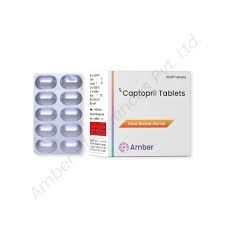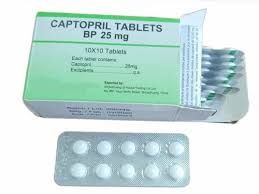Captopril is an oral medication classified as an angiotensin-converting enzyme (ACE) inhibitor. It is primarily used in the management of hypertension (high blood pressure) and heart failure, as well as for improving survival after a heart attack.
Key Uses
- Hypertension: Captopril is effective in lowering high blood pressure, helping to reduce the risk of stroke and heart attack.
- Heart Failure: It aids in managing symptoms and improving heart function.
- Diabetic Nephropathy: Captopril is also utilized to protect kidney function in diabetic patients.
Mechanism of Action
Captopril works by inhibiting the ACE enzyme, which plays a crucial role in the renin-angiotensin system. By blocking this enzyme, captopril decreases the production of angiotensin II, a substance that constricts blood vessels. This leads to:
- Vasodilation: Relaxation of blood vessels, reducing blood pressure.
- Decreased workload on the heart: Making it easier for the heart to pump blood.
Dosage and Administration
- Typical Dosage: The usual starting dose for hypertension is 25 mg, taken two to three times daily, ideally on an empty stomach (at least one hour before meals).
- Maintenance Dose: The dose may be adjusted based on blood pressure response, typically up to a maximum of 450 mg per day.
Side Effects
Common side effects may include:
- Nausea
- Taste changes
- Nonproductive cough
- Dizziness or lightheadedness, especially when standing up
- Elevated potassium levels
Warnings and Precautions
- Pregnancy: Captopril can cause fetal harm; it should be discontinued as soon as pregnancy is detected.
- Kidney Function: Regular monitoring of kidney function and electrolytes is necessary, as captopril can affect renal function.
- Dizziness: Patients should be advised to rise slowly from sitting or lying positions to prevent dizziness.
Storage
Store Captopril tablets at room temperature (below 25°C), away from moisture and heat. Keep out of reach of children.







